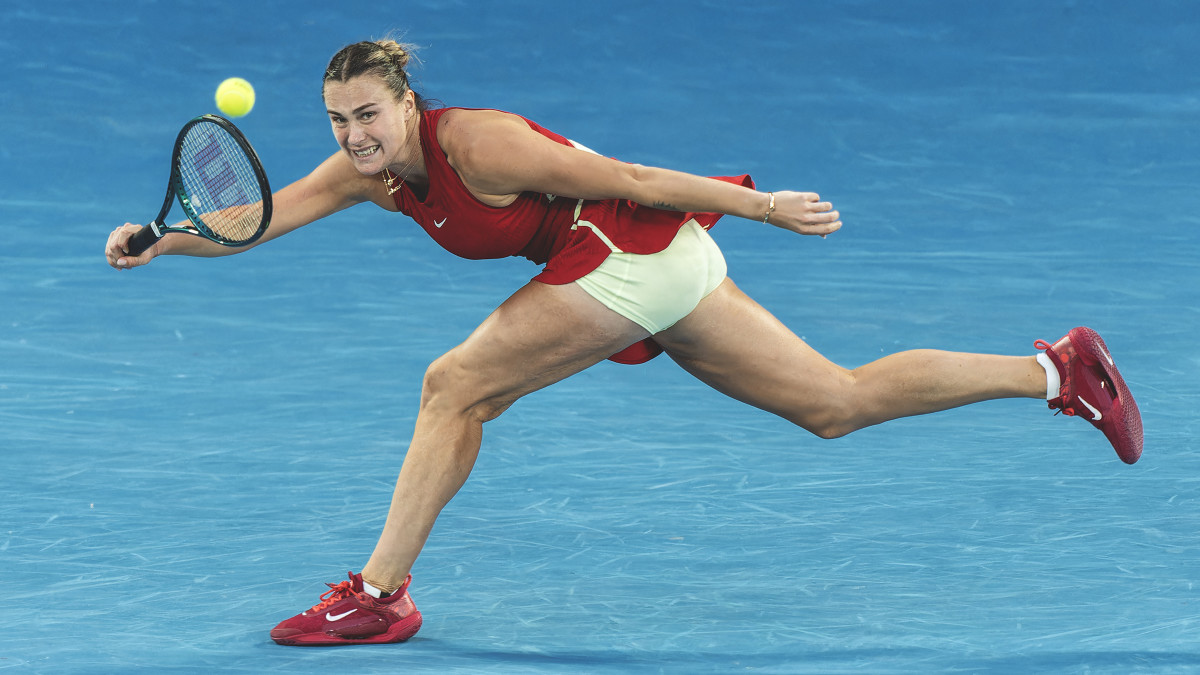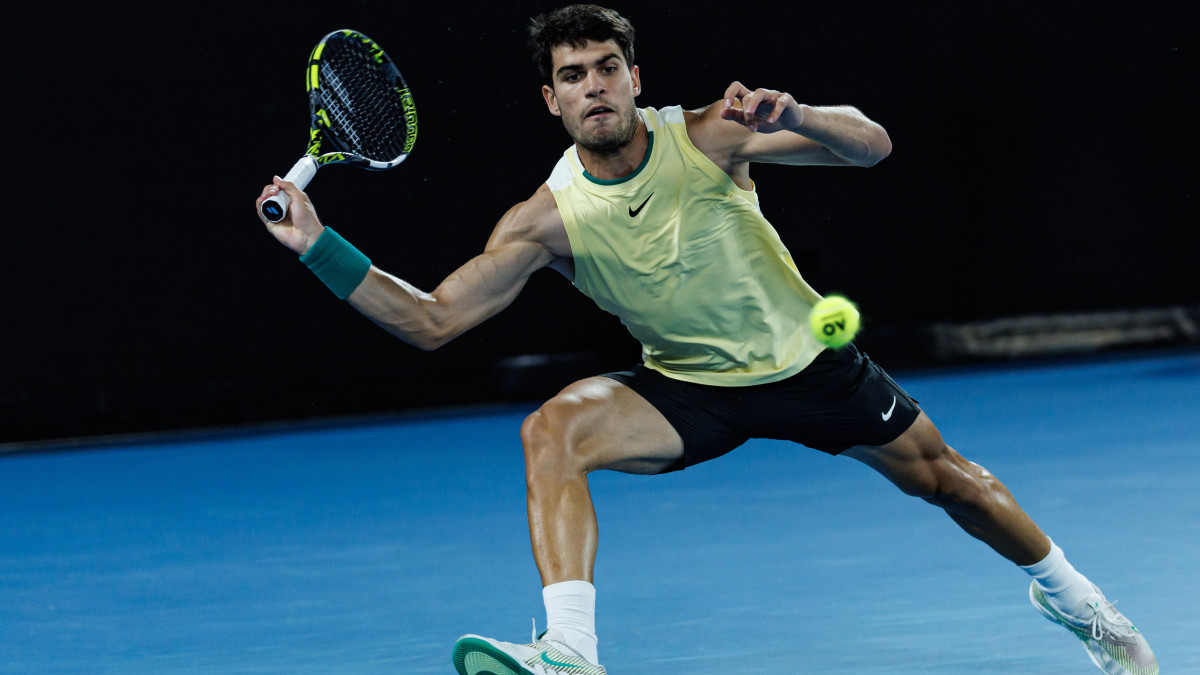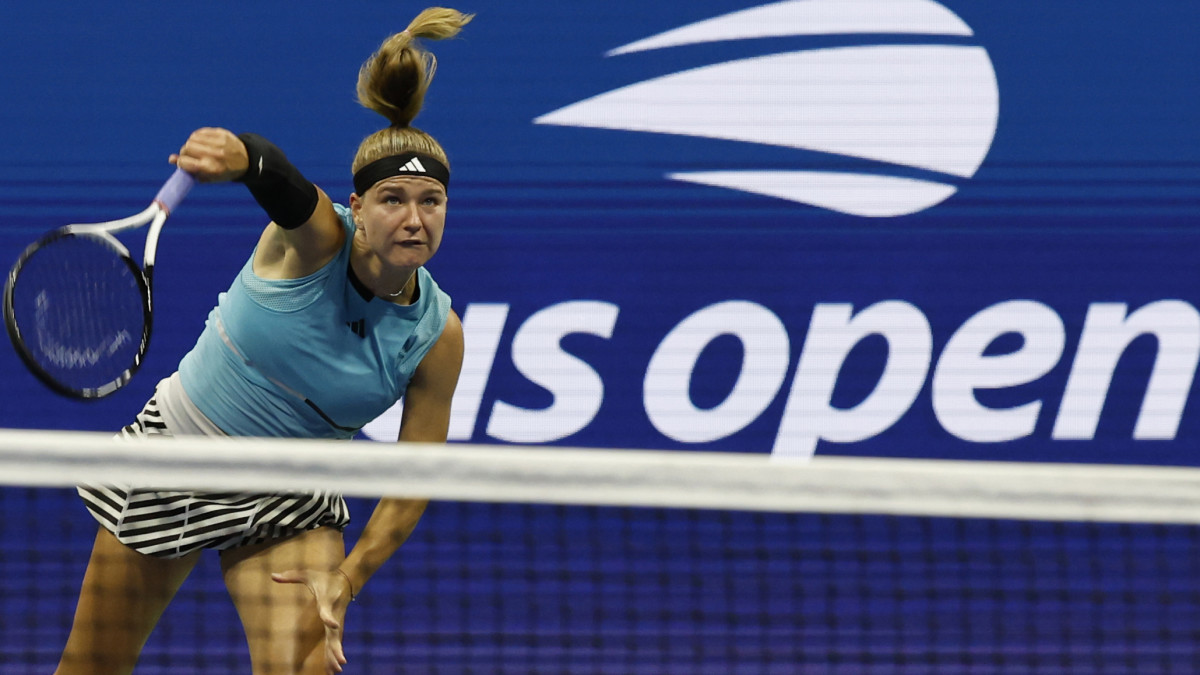The Australian Open Marks the Evolution of Aryna Sabalenka

Editors’ note, upon publishing: Questions in this mailbag were lightly edited for clarity and brevity.
Some final Australian Open Q&A before we spin forward …
• FWIW, the column wrapping up Australia is here: 50 Parting Thoughts From the 2024 Australian Open.
• Again, if you would like the tennis mailbag emailed, let me know at jon_wertheim@yahoo.com.
• Some requests for last week’s 60 Minutes segment on animal rescuer Pat Craig:
60 Minutes News Story.
• I am limited in what I can say, but Andy Roddick is working on a podcast, and—as you might imagine—he has informed opinions to share. Watch this space.
• So many of you had such kind messages last week. It is a rotten time for Sports Illustrated and your notes mean a lot to me and my colleagues.
Onward …
Hi Jon,
It occurs to me—how interesting is the contrast between [Aryna] Sabalenka’s joyful and playful personality and her seemingly simple power game vs. her slow, methodical growth as a player? Remember the player who won Wuhan in 2018, looking like she was busting through into the next top player, and then seemed to make only the tiniest amount of growth over the next year, finishing at year-end #11 again? And then climbed only one spot to year-end #10 in 2020, winning another 1000-level tournament but not reaching a Slam QF yet? Typically that kind of pattern would signal a player has hit their ceiling. But not Sabalenka. Dealing with and getting past the death of her father, dealing with her service yips, methodically building her mental strength and game up over the course of years—it doesn’t seem like someone with her spontaneous and passionate personality would be so studious, but I suppose that’s part of what separates great champions from the rest of us.
Chris B.
Insert upward arrow emoji here. One hundred times “yes” to the preceding question. Amen. I am in absolute, vigorous agreement.
Had you brought up Sabalenka’s name to casual fans 13 months ago, what would the word cloud look like? “Yips.” “Grunting.” “Emotion.” “Power.” “Errors.” “Erratic.” “Tursunov.” She was a bit of a mayhem merchant. She could—and did—win matches by simply belting opponents off the court. She also hit herself out of matches with errors. She had that memorable stretch when her serve was so off, hitting double-digit double faults in a set. And then turned to serving underhanded. With no top-16 seed in sight and a title in her grasp, she lost in the 2021 U.S. Open semifinals to Leylah Fernandez.
Now? She has made the semis of six straight majors, eliminating the dips and off days that punctuated her first five years on tour. In Melbourne—both this year and last—there has been the familiar power and improved athleticism. But virtually no chaos. Sabalenka’s serve was not just drama-free but dominant. She was not broken the entire tournament. She played tactically. She built leads, that, if anything, enabled her to dial down the power and play with margin. (Only Coco Gauff took more than three games off her in a set.)
This was a poised and professional athlete at the peak of her powers. Without naming names, it’s easy to think of a handful of players who can draw inspiration from her. You are not predestined to play or act or run your career in a certain way. Players can evolve, especially when they are committed to the evolution. Bravo to her.

Hey Jon,
I was wondering what your thoughts are about Daniil Medvedev after his 2024 Australian Open loss to Jannik Sinner. I am absolutely thrilled for Sinner on winning his first (and likely not last) major and gutted for Medvedev (even though I am not much of a fan). Medvedev has lost 5 of the 6 major finals he’s competed in. Of those 5 losses, 3 have come in 5 set losses, and 2 of those after leading 2 sets to 0 (including the 2024 Australian Open). Do you think he is starting to build a mental block in winning majors? Is he creating so much scar tissue that it will be hard to overcome it? What are your overall thoughts? I can’t imagine him NOT winning another major but his record so far is not good.
Pedro, Chicago
Agreed. Medvedev won six matches. He played for more than 24 hours. He was a great sport about it, but he was screwed by the scheduling. And he came within a few matches of winning his sixth major hardcourt final. All the other losses came against Rafael Nadal or Novak Djokovic. And he is still in his mid-20s. Sinner won the title. All credit to him. But you hope someone in Medvedev’s camp tells him his stock got a big boost here as well.
Hi Jon;
Was any AO storyline more satisfying than Rohan Bopanna’s “If at first you don’t succeed, try, try, try again” (times 60) triumph in men’s doubles? He not only wins his first major men’s doubles title alongside partner Matthew Ebden, but rises to number one in the rankings and raises the bar for the oldest male title winner at a major.
Teddy C., NYC
I wrote the other day that the sensation of Week One was 16-year-old Mirra Andreeva. The scene-stealer of Week Two was a 43-year-old doubles player. Can we also shout out (mailbag reader) Matt Ebden for how graciously he handled the occasion? An Aussie winning doubles (again) is a big deal. But he had the self-awareness to recognize the moment for his partner.
Jon—what do we do with Carlos Alcaraz? A US Open and Wimbledon champion cannot be dismissed as a flash in the pan. But thinking of the player who will break through as the next generational champion, his lack of consistency on the big stages has got to be a question. Champions rise to the occasion. Nadal had won how many titles at RG by the same age? What’s your view—he’s a talented player who just needs to tweak a few things to run the board for years, or he’s a talented player who lacks the fortitude to clamp down as number one for the next five years and will win the occasional major?
Mark
I go both ways here. He’s 20 and has won two majors. Let’s relax, everyone. Djokovic did not have two majors at 20. Neither did Roger Federer. Spectacular player. You can’t win them all. Falling to Medvedev and Alexander Zverev in latter-round matches—Alcaraz’s fate in the two previous majors—isn’t exactly flaming out. And yet …
If we are gushing (rightly) at his ascent, flagrant talent and Wimbledon heroics, are we not duty-bound to note the dip? Since reaching that Cincinnati final and failing to put away Djokovic, Alcaraz has not reached a final, much less won a tournament. His performance against Zverev in Melbourne was oddly vacant. There’s no crisis, but one senses that perhaps he’s not as complete a player as we once thought. (Strategy, point construction and shot selection still leave room for improvement.) We’ll know more in the next few months. Again, no panic. But there’s been an undeniable plateau since Wimbledon.

I’m rooting for Medvedev tonight as the trophy presentation will be much more dynamic if he wins.
James B.
A reminder: A) Fans root for different reasons. B) Medvedev, tennis treasure.
Sinner is a wonderful player. He is less wonderful as a dynamic quote. (Pre-empting … yes, he is here to play tennis, not entertain with quips. Yes, the same poise and measuredness is what enabled him to win a major.) To the extent that geography is destiny, note that his home in Italy is much closer to Munich than Milan—never mind Rome and Naples. To generalize and lapse into stereotype, he scans more cool Teutonic than passionate Italian.
Serious question…when did everyone start calling majors …grand slams? Grand Slam = winning all 4 majors!! Australian, French, Wimbledon and US Open!
@td14
Correct! There are not four Grand Slams. There are four majors. Win them all and it’s a Grand Slam. When—and thank you to the reader who sent this—you see a headline that Mary Pierce won her first Slam, you think, “Wow, Mary Pierce won four straight majors? Who knew?”
Jon,
I saw you talking about it on the Tennis Channel with Lindsay Davenport but didn’t catch your answer. Who is the best [female] player never to have won a major?
Jeffrey
The premise and preface: we come to praise not to bury. This is a term of endearment. The tennis salon deems you capable of winning a major. You could have. Maybe you should have. Perhaps you will.
Me? I went off the menu. The popular choices were Ons Jabeur (who has appeared in three major finals) and Karolina Plíšková (who has ascended to No. 1 and reached two major finals). I went with a different Czech Karolina. Muchová. She has been to the quarterfinals (at least) of each of the four majors. She has been to the French final—and went blow-for-blow with Iga Świątek. At 27, there are enough data points that we know she is good. But enough years remain that we know there’s still time.

Bianca Andreescu is only 23 and has already won a Grand Slam. When that happened, she was heralded as the future of tennis. However, she has only won 3 titles so far in her career, and nothing since 2019. What is going on with her?
Raymond
I hear Andreescu’s name and have two immediate thoughts. A) She is one of those players about whom we think, If you don’t like her, that’s a you problem. She’s likable. She’s candid. She’s vulnerable. She’s great with fans. The next peer to speak ill of her will be the first.
B) She is proof that physical and mental are a false dichotomy. They play off each other and when a player is physically compromised it often affects mental health as well. At 19 she won the U.S. Open. She hasn’t been the same since, owing largely to a stubbornly disobedient body. This, understandably, has exacted a price on her mental well-being. The good news: she has the good sense to take time off. And she is still only 23.
We’ve cheered on Anna Smashnova. We’ve almost said adieu to 2X AO QF [Tennys] Sandgren. We even got to know Dally Randriantefy. But we need to talk about Storm Hunter, who apparently was Storm Sanders a short time ago and is now the #3 seed and on court in a highly entertaining women’s dubs semi! What else should we know about her (cloud)bursting on the scene?
Matt G.
If we are doing the name thing, you cannot overlook Sabine Hack. Anyway, Storm Hunter sounds like a character in Twister. Storm Sanders was an excellent junior player. As a pro, she has established herself as a top-shelf doubles player. She married Loughlin Hunter in 2022 and took his name. She is also coached by Nicole Pratt —who was so generous and kind to me when I first started covering tennis—and this gets her incalculable bonus points.
The source of my ire today is Mass General Brigham Hospital in Boston. You see, I had a dermatology appointment downtown at 10 am (don’t worry, everything is fine), and was looking forward to watching the match upon my return home, with no knowledge of the score of either semifinal thanks to my aforementioned self-imposed media blackout. What I didn’t account for was the small screen installed in the hospital’s elevator that showed the weather, an advertisement for an eczema medication, and…the results of the $%#$@ Australian Open Men’s Semifinals!!!! The nurse that I rode the elevator with was startled by my sudden frustrated outburst but seemed amused by my explanation. And to top it all off, the dermatologist was 45 minutes late for an appointment that lasted less than 5 minutes.
Thanks for the great coverage and commentary!
Taylor Witkin, Somerville, MA
I am happy everything is fine. Between text alerts, crawls and Australian Open clips showing players with arms aloft … in 2024, it’s awfully hard to avoid spoilers. Just like a WTA draw.
Shots:
• Good soldiering and good news on the viewership front: The ratings for the Tennis Channel pregame shows for the Australian Open were way up from 2023.
• Coverage of the first men’s semifinal match on ESPN, Djokovic vs. Sinner (10:42 p.m.-2:20 a.m ET.), averaged 760,000 viewers, which currently stands as the most-viewed Australian Open men’s semifinal telecast since 2014’s coverage of Nadal and Federer (845,000 viewers). The 760,000 viewers for this year’s primetime window is up 79% from the comparable window last year (425,000 viewers) and +29% from 2022 (590,000 viewers).
• An anonymous reader wondered if we had devoted enough attention to the bizarre Marcelo Rios and Shang family feud.
